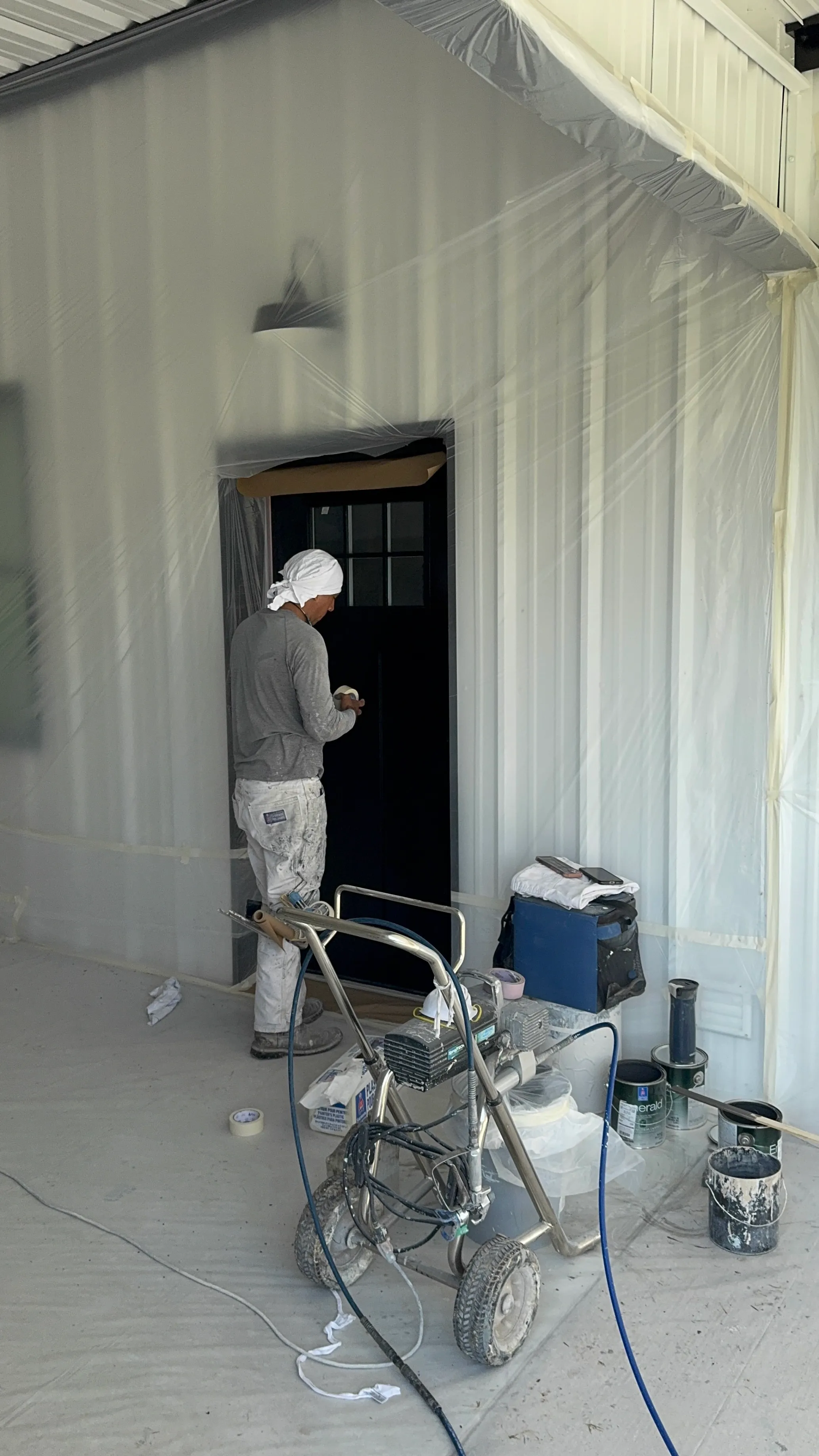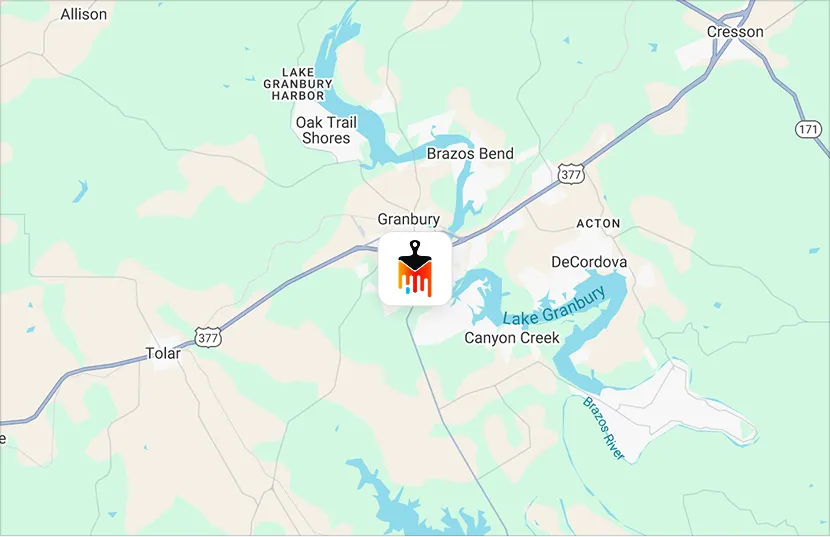Fence & Deck Staining in Cleburne, TX
Fence & Deck Staining in Cleburne, TX
Your fence and deck are exposed year-round to Cleburne's intense sun, summer humidity, storms, and the occasional freeze. Proper staining and sealing not only restore curb appeal but actively protect wood from UV damage, moisture intrusion, mildew, and splitting. This page explains what a professional fence and deck staining service in Cleburne, TX covers — from wood assessment and repairs to stain choices, application methods, expected lifespans, seasonal timing, and maintenance plans — so you can make an informed decision for long-term protection.

Common fence and deck problems in Cleburne homes
- Faded color and gray surface from high UV exposure.
- Mildew and algae growth on shaded or humid-exposed boards.
- Surface checking, splintering, and small splits from rapid drying and heat cycles.
- Loose fasteners, warped boards, and rot in ground-contact areas after heavy rains.
- Uneven absorption and blotching on different wood types like pressure-treated pine and cedar.
Types of staining services offered
- Full deck stain and sealer application for horizontal walking surfaces.
- Fence staining and sealing for privacy and picket fences.
- Spot repairs and partial re-staining for high-wear zones.
- Color refresh and conversion: switching from transparent to semi-transparent or solid finishes for increased protection.
- Preventative sealing of railings, posts, and stair treads.
Wood assessment and repair
A thorough pre-stain assessment identifies structural and surface issues that will affect finish performance. Typical checks include:
- Inspecting for rot, soft spots, or insect damage and replacing affected boards.
- Verifying nail and screw integrity, resetting or replacing fasteners and tightening loose boards.
- Checking end grain and post bases for water exposure and recommending protective flashing or post anchors when needed.
- Assessing wood species (pressure-treated pine, cedar, or other common local woods) to determine appropriate prep and stain type.
Addressing these repairs before staining ensures adhesion and extends the life of the finish. Small repairs like board replacement, sanding rough spots, or setting nails are standard parts of a professional prep process.
Surface prep: pressure washing and sanding
Proper surface preparation is the most important factor for long-lasting results.
- Pressure washing removes dirt, mildew, and old failing finish. In Cleburne, schedule pressure washing during dry stretches so wood can fully dry before staining.
- Sanding solves rough grain, raised fibers, and old peeling stain. Light sanding promotes even absorption for transparent and semi-transparent stains.
- Allow sufficient drying time after washing; high humidity in summer can slow drying. Aim for at least 48 to 72 hours of dry weather before application when possible.
Stain and sealer options explained
Choosing the right product depends on desired look and level of protection.
- Transparent stains
- Pros: Shows the wood grain, natural appearance, quick recoat.
- Cons: Least UV and pigment protection; typically needs reapplication every 1 to 2 years in high-sun areas like Cleburne.
- Semi-transparent stains
- Pros: Good balance of color and grain visibility with improved UV protection; common choice for decks and privacy fences.
- Cons: Recoat frequency typically every 2 to 4 years depending on exposure.
- Solid stains
- Pros: Highest pigment offering superior UV-blocking and uniform color; hides imperfections and provides longest lifecycle.
- Cons: Conceals grain; usually lasts 4 to 7 years before full recoat, with touch-ups possible.
Many modern formulations include mildewcides and water repellents to address moisture-driven issues common in North Texas. For ground-contact areas or posts, higher-penetration sealers and preservative-treated products are recommended.
UV and moisture protection benefits
- UV protection reduces wood bleaching, surface checking, and coating breakdown.
- Moisture repellents limit water absorption that leads to swelling, rot, and mold growth after storms.
- Properly stained and sealed surfaces reduce maintenance, help prevent splintering, and increase the usable life of decking and fencing materials.
Application methods and expected lifespans
- Application methods: brush, roller, or airless sprayer with back-brushing for even penetration and better adhesion on porous woods.
- Typical coverage: one or two coats depending on product and substrate. Back-brushing after spraying pushes the product into end grain and gaps.
- Drying times vary by temperature and humidity: warm, low-humidity days are ideal. Avoid application when temperatures exceed 95F or humidity is very high.
- Expected lifespans (approximate, influenced by sun exposure, foot traffic, and maintenance):
- Transparent: 1 to 2 years
- Semi-transparent: 2 to 4 years
- Solid: 4 to 7 years
Local conditions in Cleburne — strong summer sun and periodic heavy rains — tend to reduce these windows on south- and west-facing elevations, so choose a higher-protection finish for those exposures.
Seasonal scheduling recommendations for Cleburne, TX
- Best windows: spring (March to May) and fall (September to November) when temperatures are moderate and humidity is lower.
- Avoid staining during peak summer heat or immediately before predicted storms.
- For spring projects, schedule surface prep after pollen and before summer heat. For fall projects, complete staining ahead of the wet winter months to create a protective barrier.
Maintenance plans and long-term care
A proactive maintenance plan extends the life of your investment:
- Annual inspection for mold, mildew, loose boards, and failing finish.
- Routine gentle cleaning each spring with a low-pressure wash and deck cleaner.
- Spot touch-ups on high-traffic areas and railings mid-cycle to delay full recoat.
- Full recoat according to the stain type and condition assessment rather than strict calendar intervals.
- Apply water-repellent maintenance products on end grain and exposed posts annually.
Consistent maintenance reduces repair costs and prevents premature replacement of boards.
Visual gallery of completed projects
A well-documented gallery of past fence and deck staining projects shows color options, finish types, and before-and-after transformations. Look for examples that match your wood type (cedar vs treated pine), exposure orientation, and preferred stain style (transparent, semi-transparent, solid) to set realistic expectations for color and longevity.
ConclusionFence and deck staining in Cleburne, TX is a targeted investment that protects against the region's high UV levels, humidity-driven mildew, and storm-related moisture. A proper service includes a detailed wood assessment and repairs, thorough surface prep, informed stain selection, correct application techniques, and an ongoing maintenance plan tailored to Cleburne weather patterns. When executed correctly, staining preserves structural integrity, enhances curb appeal, and stretches the life of your outdoor wood surfaces.
Service Areas
Marin's Painting proudly serves a wide range of areas, ensuring top-quality painting services for both residential and commercial properties. Our team is dedicated to transforming spaces with precision and care.



